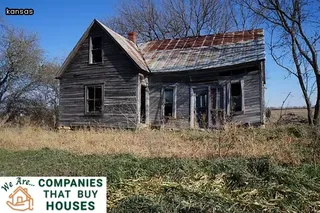An executor is an important figure in probate proceedings in Kansas. The executor is appointed by the court to act as a representative of the deceased's estate, and has several duties that must be fulfilled including collection of assets, payment of estate debts, filing tax returns, and distribution of assets to beneficiaries.
Executors are required to follow state laws when it comes to dealing with the property and assets of an estate. They must also provide proof that they have properly carried out their duties as executor by submitting a final accounting report to the court.
Most importantly, they are responsible for making sure the wishes of the deceased are carried out according to their will. It is important to remember that an executor does not have personal ownership over any of the assets in an estate - all decisions must be made on behalf of the entire estate and its beneficiaries.

In Kansas, an executor of a will is usually allowed to take compensation for the services they provide during probate, including accepting and paying bills, filing tax returns, selling real estate or other property, and distributing assets to heirs. Executors are also entitled to reimbursement for out-of-pocket expenses related to probate.
To get paid for executor services in Kansas, an executor must generally submit a petition requesting compensation from the court that approved the probate. The amount requested should be reasonable and in line with similar fees charged by other attorneys or professionals who provide similar services.
When submitting the petition, it must include detailed documentation of all the tasks performed by the executor during the probate process. After reviewing and approving the petition, a judge will issue an order authorizing payment of executor fees and expenses.
Additionally, if there are any disputes regarding fee amounts or entitlements between beneficiaries or creditors, those may need to be resolved before payment is issued.
Filing for probate in Kansas is an important process that must be undertaken if the deceased owned real estate in the state. The first step is to determine if you are the executor of the estate, which may require a copy of the will or other documentation to prove it.
You must then file a Petition for Probate with your local court, along with paying any associated filing fees and obtaining a surety bond. Additionally, you must also provide an inventory of all assets and debts that were owned by the deceased.
After these initial steps have been taken, you will need to provide notice of the probate proceedings to creditors and family members so they can submit any claims against the estate. Finally, you will need to collect all assets owned by the deceased, pay off any outstanding debts, and distribute the remaining property according to Kansas law.

When probating an estate in Kansas, there are several key parties that must be notified of the proceedings. These include the decedent's heirs, creditors, and other interested persons.
The executor of the estate is responsible for providing notice to these individuals or entities. Notice may be provided in writing, by mail, or by publication in a newspaper.
The notice should provide basic information about the probate case, including a description of the property involved and any claims against it. It should also provide instructions on how to contest the will or make objections to any part of the process.
In addition, notice should be provided to government agencies as required by law. This includes notifying the Internal Revenue Service if taxes are owed on any assets from the estate.
Lastly, it is important to note that all notices must comply with applicable state laws and must be sent within certain time frames for them to be valid.
When estates pass through probate in Kansas, taxation can have a major effect on the total value of the estate. Property taxes are due for any real estate that is part of the estate and must be paid out of the estate's assets.
In addition, state and federal inheritance taxes may also be applicable. The Kansas Department of Revenue administers these taxes and provides detailed instructions on how to file them.
If the estate is large enough, it may also need to submit an Estate Tax Return which will be subject to review by the Department. It is important for those dealing with a probate estate in Kansas to understand how taxation can affect the overall value of the estate and take steps to ensure that all necessary taxes are paid properly and on time so that there are no delays or penalties.

In Kansas, there is a time limit to file for probate after a death. Typically, the court must receive the petition within four months of the decedent's death.
If you fail to submit the paperwork within this timeframe, the estate will be closed and it may be difficult to gain access to assets. Once probate has been initiated, any real estate owned by the decedent must be inventoried and appraised as part of the process.
It is important to note that creditors have priority over heirs when settling debts. After all liabilities have been addressed, any remaining assets are distributed according to state law or per instructions outlined in a valid will.
The probate process may take several months or even longer if disputes arise between parties involved in the proceedings. It is wise to consult with an experienced attorney who can help ensure that all necessary steps are taken properly and efficiently so that you can move forward with administering your loved one's estate.
When selling property during the probate process in Kansas, there are certain rules and regulations that must be followed. It is important to understand these rules prior to beginning the process in order to ensure a smooth transition.
The first step is for the estate representative to obtain Letters of Administration from the court, which grants authority to sell real estate as part of settling an estate. Next, the estate representative must provide public notice of their intent to sell by placing a classified advertisement in a local newspaper for three consecutive weeks.
Finally, it is important to secure an appraisal and obtain two separate appraisals if the property is worth more than $25,000. Additionally, personal representatives are required by law to accept offers that are at least ninety percent of fair market value on properties valued at less than $50,000.
In any case, all parties involved must sign a contract before any sale can be completed.

Probate is the process of legally settling an estate after a person passes away and it is required in Kansas if the decedent owned real estate or other assets that need to be distributed. The executor of the estate will typically be responsible for filing paperwork with the court and providing certain documents to prove that all debts are paid and all assets are distributed.
In order to finalize an estate in Kansas, the executor must file a Petition for Probate, which will allow them to manage the estate and submit any necessary documentation. They must also provide a Notice of Filing of Petition to all interested parties and submit an inventory listing all assets owned by the decedent.
After this, they must pay off any remaining debts or taxes owed on behalf of the decedent, as well as provide notice of any creditors’ claims against the estate. Finally, they must prepare a final accounting statement detailing how all assets have been distributed.
Once these steps have been completed, they can then petition the court for Final Discharge from Administration and request that title to real property held by deceased be transferred to their rightful owners per the Will or Intestate Succession laws in Kansas.
When a will is going through probate in Kansas, beneficiaries can receive their inheritance in a variety of ways. Depending on the type of assets involved, the process may differ.
Real estate often needs to be appraised to determine its value and then sold off or transferred to the beneficiary. Bank accounts may need to have any debts associated with them cleared before they can be distributed.
It is important for beneficiaries to understand that they cannot access these assets until the probate process has been completed and all necessary paperwork has been filed. This often requires the help of an experienced attorney who is knowledgeable about real estate and probate law.
With their assistance, beneficiaries can ensure that they receive their inheritance in accordance with the instructions laid out in the will.

In Kansas, probate is a legal process that requires the distribution of an individual's assets after they have passed away. While this process can be lengthy and expensive, there are alternatives available to those who wish to avoid it.
For example, if real estate is involved in the estate, a Transfer on Death Deed (TODD) can be used to transfer ownership of the property without going through probate. This deed will allow you to name a beneficiary who will take ownership of the property after your death.
Additionally, another option is creating a Living Trust which designates how assets are distributed upon death without having to go through probate court. This trust also allows for greater privacy as its terms remain private.
Finally, joint ownership with right of survivorship is another way to avoid probate by transferring title to another person at the time of death. It's important to consider all these options when planning for what happens to your real estate after you pass away and weigh out the pros and cons for each option against each other before making a decision.
When it comes to settling a small estate in Kansas, the probate process is relatively straightforward. The executor of the will begins by filing a petition with the court to open probate and appoint themselves as executor of the estate.
After that, they are responsible for collecting all of the deceased's assets, paying any outstanding debts, and distributing any remaining assets according to the decedent's will or state law. This includes real estate owned by the decedent which must be appraised and either sold or transferred to their heirs.
Before closing out an estate, the executor must also file an inventory of all assets with the court along with any taxes due on those assets. Finally, when everything has been settled and all debts have been paid off, a final accounting is made for record-keeping purposes before probate can be closed in Kansas.

In Kansas, there is not a standard distribution system for assets going through probate. Each county has its own set of rules and regulations that must be followed when disposing of estate assets.
As such, it is important to understand the legal process that must be followed when dealing with real estate and probate in Kansas. The court will often determine how assets are divided and distributed among heirs or beneficiaries of an estate.
The court may also appoint a personal representative to manage the distribution of assets within the state's laws. Additionally, surviving spouses may have certain rights under Kansas law regarding their inheritance rights in the event that their spouse passes away without leaving a valid will.
It is important to consult with an experienced attorney specializing in probate and real estate law in order to ensure that all legal requirements are met before any distributions take place.
In Kansas, it is often necessary to hire an attorney when dealing with probate and real estate matters. This can be a complex process that requires the expertise of a well-versed attorney in order to ensure that all legalities are observed and taken into account.
In many cases, an individual may need assistance in filing the appropriate paperwork and getting it approved by a court or other government agency. An experienced attorney will also be able to provide advice regarding any potential risks associated with the transaction, as well as tax implications which could affect the outcome of the probate proceedings.
Additionally, lawyers can help to protect the interests of all parties involved in the estate planning process by ensuring that any documents are properly drafted and executed. Hiring an experienced attorney is especially important when it comes to real estate transactions, where there may be issues related to zoning or ownership rights which need to be addressed.
Having an experienced lawyer on your side can provide peace of mind knowing that all aspects of your probate and real estate needs are being taken care of correctly and efficiently.

The court in Kansas decides who should receive an inheritance from an estate based on the decedent's will or other testamentary documents, if they exist. If no such documents are found, the state's laws of intestate succession apply.
These laws determine who receives assets based on factors such as the relationship between the decedent and the beneficiary, whether any beneficiary has predeceased the decedent, and other important details. The court must also consider all creditors' rights to collect any outstanding debts owed by the estate before assets may be distributed to beneficiaries.
Additionally, there may be tax implications that require further action by either the court or a tax professional before assets may be released. Real estate owned by an individual in Kansas is subject to certain legal procedures after their death and is typically subject to probate proceedings.
Probate proceedings are handled in a Kansas court and involve various parties including named heirs, executors, and administrators as well as creditors of the deceased person's estate. During this process, assets of the deceased person including real estate property must be identified and valued before any distribution can occur.
When it comes to real estate in Kansas, one of the most important questions to answer is whether or not a house has to go through probate. Probate is the process by which a deceased person's estate is distributed according to their will and state law.
In Kansas, the answer depends on several factors. If the decedent owned the property in joint tenancy with someone else, then it typically does not need to go through probate.
However, if the decedent was the sole owner of the property or held it as a tenant in common with someone else, then probate may be necessary. Additionally, if there are no surviving joint tenants or co-owners and no will or other legal document that describes how the property should be divided, then probate is required for any real estate transfers.
Understanding how probate works and when it applies can help make sure that your rights as an heir are protected when transferring real estate in Kansas.

Yes, you can sell a house that is in probate in Kansas. Probate is the legal process in which an individual's estate is settled according to his or her wishes after death.
In Kansas, this process involves validating and inventorying a deceased person's assets, paying off any debts owed and distributing the remaining assets to beneficiaries according to the deceased's will or state law. When it comes to real estate, if the property was held solely by the deceased, it must go through the probate process before it can be transferred, sold or given away.
A probate court must first determine whether the will of the deceased is valid and then appoint an executor (personal representative) who is responsible for managing and selling assets of the estate. The executor must obtain court approval before selling any real estate that was owned by the deceased.
This includes obtaining appraisals for all real property owned by the estate and filing a petition with the probate court asking permission to list and sell such property. Once approved, an executor may hire a real estate agent or broker to list and market the house for sale on behalf of the estate.
The best way to avoid probate in Kansas is to plan ahead. Taking steps such as creating a living trust, transferring assets into joint ownership, or designating beneficiaries on accounts can help your estate avoid the long and costly process of probate.
Having a revocable living trust can provide for the transfer of your assets without having to go through the court system at all. Additionally, making sure that you have all of your real estate documents in order and up to date will also help make the transition smoother and more efficient upon passing, potentially avoiding probate altogether.
If you are unsure of how to proceed with your estate planning needs, it is recommended that you consult an experienced attorney who specializes in probate law in Kansas. They can provide invaluable guidance and assistance when it comes to navigating the complexities of probate and real estate law in Kansas.
Yes, probate is necessary in Kansas when it comes to real estate. In the event of a person's death, probate is required to transfer ownership rights of their property, including real estate.
The purpose of the probate process is to ensure that the decedent's assets are managed and distributed according to their wishes as expressed in their Last Will and Testament. If a person dies without a will, then Kansas state law dictates which family members are entitled to the deceased’s assets.
Probate can be an expensive, time-consuming process for those left behind. Therefore, it's important for people in Kansas to understand what is involved with probating real estate so they can plan accordingly and make informed decisions about their estate planning needs.